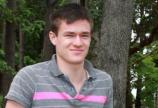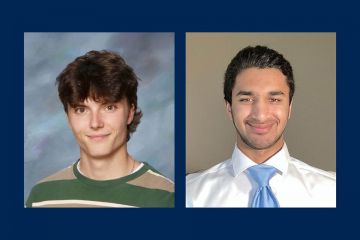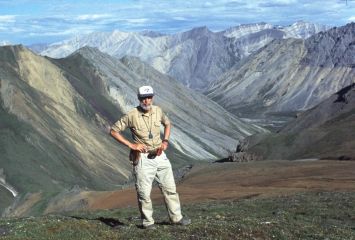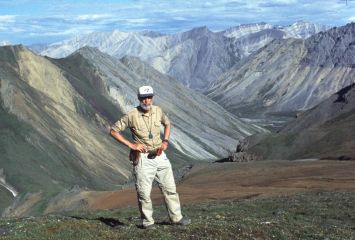Jubilee medal winner sets sights high
- Joy Fisher
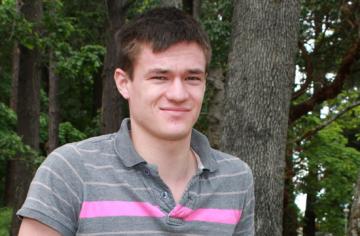
Kevin Hildebrand was initially drawn to the study of physics at Sardis Secondary School in Chilliwack because his teacher made it “fun and interesting.” But he was also attracted by the challenge of being “the best at the hardest,” and physics was the “hardest.” His hard work was rewarded when he received the Governor General’s Bronze award for being at the top of his high-school graduating class.
Hildebrand continued to excel during his undergraduate years at the University of Victoria. When he graduates from UVic in June with a BSc in a combined honours program in physics and math, he will receive the Jubilee Medal in Science for accruing the highest GPA in the sciences, just shy of a perfect 9.0.
Based on his consistent high academic achievement, Hildebrand received a number of scholarships throughout his undergraduate years, including the Howard Petch Scholarship awarded to the student who achieves the highest academic standing in the Faculty of Science.
Hildebrand spent five years as an undergraduate, accruing practical experience through the physics and astronomy co-operative education program. Between January and May of last year he worked at the Gemini observatory on the Big Island of Hawaii writing software programs. He also did a co-op on the UBC campus in Vancouver at TRIUMF, Canada’s laboratory for particle and nuclear physics.
Hildebrand will be the first person in his family to get a college degree. Even though his father didn’t consider education a priority when he himself was young, he was adamant that Hildebrand should stay in high school, and his parents are proud of his accomplishments. He intends to continue making them proud.
My goal since my first year has been to get my PhD,” he explains, and that’s just what he will be pursuing when he enters a five-year program at the University of Chicago in September. Although he enjoys physics and math both, he has chosen to concentrate on physics in his graduate program because he wants to know “everything” about the universe.
During his first year in graduate school he will have to make another choice—between theoretical and experimental physics. He is drawn to theoretical physics. Last summer Hildebrand worked for Dr. Maxim Pospelov at UVic on a model that could be applied to experiments conducted to detect dark matter. Although the existence of dark matter has not yet been confirmed, theoreticians hypothesize it makes up a large part of the total mass of the universe.
One thing Hildebrand already knows for sure is that he has no interest in making money for the sake of making money. “I just want a job I enjoy.”
Photos
In this story
People: Kevin Hildebrand

